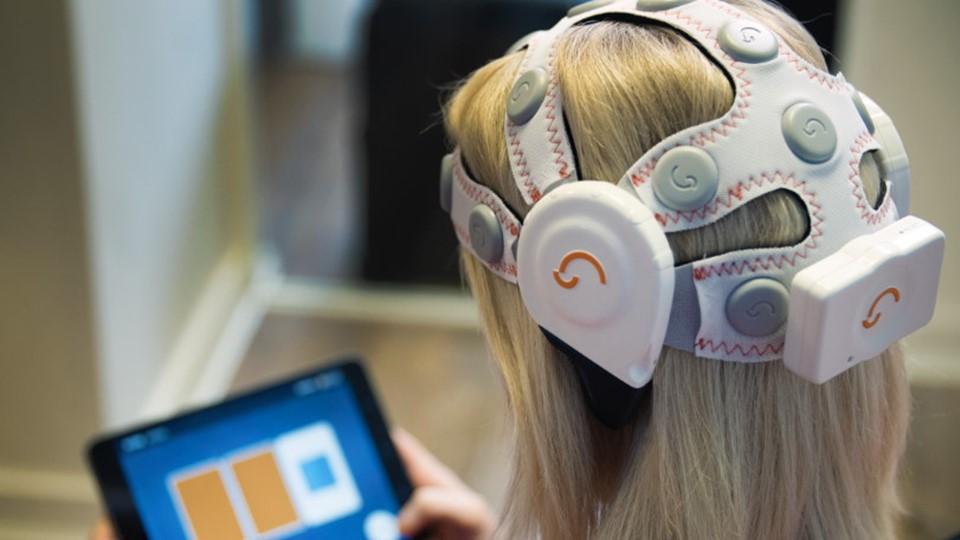UK project will trial EEG device for Alzheimer’s detection

Digital health company Cumulus Neuroscience has teamed up with two UK universities to develop its at-home electroencephalogram (EEG) headset as an early warning system for Alzheimer’s dementia.
Cumulus will work with researchers at the universities of Bristol and Bath on a major 1,000-subject study of the three-minute Fastball EEG test, which measures brain activity while subjects watch a series of flashing images displayed on a tablet or smartphone screen.
Ultimately, the aim of the project is to develop Fastball EEG as a commercial product that could be used by health systems around the world to detect people with Alzheimer’s at the earliest stages – a goal which has become more important now that disease-modifying therapies for the disease are starting to reach the market.
At the moment, Alzheimer’s tends to be diagnosed using subjective cognitive and memory tests, sometimes accompanied by time-consuming and expensive PET brain scans or invasive spinal fluid analysis.
Cumulus notes that its device is a passive test, so isn’t impacted by anxiety level, education level, or language skills.
It is a ‘dry’ EEG system that provides an alternative to lab-based equipment using wet electrodes that require gel application, skin preparation, and clean-up procedures that can impede the use of the technology in real-world settings.
Previous studies carried out with Bath cognitive neuroscientist Dr George Stothart and Bristol neurologist Dr Liz Coulthard have suggested that Fastball EEG can pick up small, subtle changes in brain waves that occur when a person remembers an image, and that this response changes when a person develops dementia.
The new study will be funded with the help of a grant from the UK’s National Institute for Health and Care Research (NIHR) and, according to Cumulus, will be the largest of its kind conducted to date in Alzheimer’s.
It will also test the use of blood-based biomarkers for this type of dementia that, when combined with the EEG data, could offer a “definitive diagnosis” for Alzheimer’s dementia, according to the company.
“Today, many patients living with Alzheimer’s dementia wait up to 20 years to receive a diagnosis,” said Brian Murphy, Cumulus’s founder and chief scientific officer.
“The pen and paper-based assessments currently used by physicians have limitations, since they lack the objective physiological data that only an EEG can provide,” he added.
“By removing barriers to diagnosis for all patients, regardless of ethnicity or education level, Fastball EEG has the potential to accelerate enrolment in clinical trials, bringing much-needed treatments to patients and their loved ones faster.”













